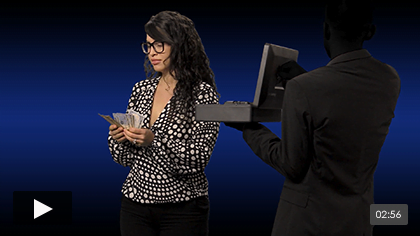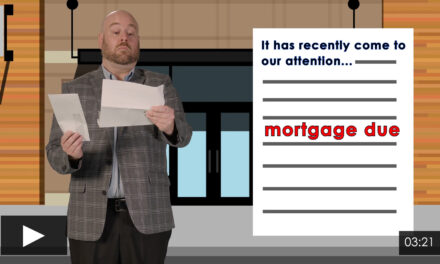Funds handed to the broker for marketing costs
Funds advanced by the client directly to the broker for costs the client agrees to pay belong to the client. Typically, the seller will incur costs for acquiring property reports and marketing the property to prospective buyers.
On receipt of an advance deposit from the client for the payment of costs, the broker will place the funds in their trust account since they are trust funds. [Calif. Business and Professions Code §10146]
An advance cost sheet, also referred to as a marketing package cost sheet, acknowledges the broker’s receipt of any deposit towards marketing costs. Further, it authorizes the broker to make disbursement from the funds as the itemized costs are incurred. The advance cost sheet is best included as part of the marketing package as an attachment to the listing agreement. [See RPI Form 107]
When the listing terminates, the broker is to return all remaining trust funds to the client. The broker may not use trust funds to offset any fees the client may owe them, unless instructed to do so.
An accounting of all funds held in trust will be handed to the client every calendar quarter. However, a monthly accounting by way of a print out of the client’s trust account ledger creates a better business relationship.
Accounting of funds
A final accounting of the funds will be made when the listing agreement expires. Again, if any funds remain, they will be returned to the client with the final accounting. [Bus & P C §10146]
The statement of account for the trust funds will include the following information:
- the amount of the deposit toward advance costs;
- the amount of each disbursement of funds from the trust account;
- an itemized description of the cost obligation paid on each disbursement;
- the current remaining balance of the advance cost deposit; and
- an attached copy of any advertisements paid from the advance cost deposit.
Lastly, the broker is to keep all accounting records for at least three years. Further, the records will be made available to the California Department of Real Estate (DRE) upon request. [Bus & P C §10148]
A broker who fails to place advance cost deposits in their trust account, or who later fails to deliver proper trust account statements, is presumed guilty of embezzlement. [Burch v. Argus Properties, Inc. (1979) 92 CA3d 128]
For example, a borrower retains a mortgage broker to locate a lender to make a mortgage to fund the acquisition of real estate. The borrower and mortgage broker enter into an exclusive right-to-borrow listing agreement.
The listing agreement states the broker will receive a broker fee when the mortgage is funded by the lender the broker locates. [See RPI Form 104]
The broker includes an advance cost sheet as an attachment to the listing. The advance cost sheet calls for the borrower to advance funds to cover itemized costs which will be incurred by the broker while arranging a mortgage. These costs cover such items as the appraisal of the property securing the mortgage and credit reports. The advance costs are separate and unrelated to the payment of the broker fee.
The borrower issues a check payable to the broker for the amount of the costs to be incurred by the broker while arranging the mortgage.
Can the broker deposit part or all of the funds advanced by the borrower into the broker’s general business account to cover the costs the broker is to pay on behalf of the borrower?
No! Funds received by the broker to hold and use to pay costs to be incurred in the future on behalf of the borrower are trust funds.
Trust funds are deposited by the broker in a trust account in the name of the broker as trustee. They are separate from general accounts established to hold the broker’s personal or business funds. [Bus & P C §10145]














